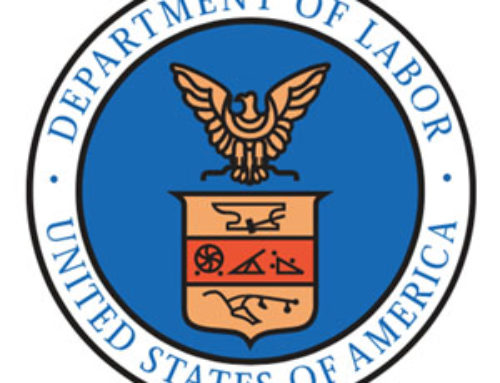Washington state fined apple and cherry grower Gebbers Farms over $2 million for “egregious, willful” violations of COVID-19 health and safety precautions, the state Department of Labor and Industries said in a news release on Dec. 21.
While investigations began with the deaths of two workers on H-2A visas in July, the magnitude of the fines results from the fact that it took 12 days for the Brewster, Washington-based company to correct the violations of not providing required social distancing in housing and transportation, said Tim Church, a spokesperson for L&I. It’s one of the largest fines in state history, he added.
A 37-year-old man from Mexico died on July 8 and a 63-year-old man from Jamaica died on July 31, according to the L&I press release. A third farm employee who died of COVID-19 was a local resident.
Under the state’s emergency COVID rules for temporary worker housing, bunk beds can only be used if workers stay in cohorts of 15 or fewer workers who work, sleep, eat and travel separately from others.
Gebbers’ management said in a statement that it had created a cohort system of its own early in the pandemic, (prior to the state’s 15 person “group shelter” option that took effect on May 18) based on the advice of an infectious disease expert, with groups of 42 people working and traveling together. That wasn’t sufficiently protective, the state found.
Citation records show that L&I found 2,700 H-2A workers were potentially exposed to COVID-19 in nine different housing camps because bunks were used for greater than 15 workers. That accounted for 12 violations. Another 12 stemmed from the farm’s use of buses to transport up to 42 workers to and from orchards — failing to provide social distance or limit workers to 15-person cohorts.
L&I first alerted Gebbers to those concerns during a late May investigation triggered by a worker complaint. That investigation resulted in a $13,200 fine issued in November for using bunk beds without a cohort system and not ensuring social distancing.
Other violations in the July investigation included failure to erect physical barriers in the community kitchen and failure to report the first employee death within 8 hours, according to the citation.
“Gebbers continually failed to comply, even after the first worker died and our repeated presence at the farm, clearly demonstrating a lack of regard for worker safety and health,” said Anne Soiza, L&I assistant director for the Division of Occupational Safety and Health, in a statement.
A spokesperson for Gebbers Farms, Amy Philpott, disputed that statement, saying that worker safety has always been the company’s priority. In July, at the peak of cherry season, the company had some 4,500 workers it needed to shift into smaller cohorts, a logistical challenge that took time to accomplish, she said.
“They had already retooled their system to fit a 42-person cohort and had to retool it again to accommodate 15,” she said on Monday. With 4,500 employees, “that just doesn’t happen quickly.”
Philpott also said Gebbers Farms was unable to immediately report the employee death to L&I because the hospital and local health district would not release the information to the employer.
Gebbers’ management is evaluating the option to appeal the violations.
“While we disagree with the agency on this matter, we will always do everything we can to keep our employees safe in the workplace,” the statement from Gebbers’ management said.
Testing of over 3,000 employees at Gebbers Farms, mandated by the state in late August, found that just 22 employees at the time were positive for COVID-19. At 0.7 percent, that fell far below the positivity rate for the surrounding community and state of Washington. That’s a sign the company’s health and safety precautions were working, CEO Cass Gebbers said in early September.
Widespread testing data was not available in July, Philpott said.
The company has 15 days to appeal the violations and $2,038,000 penalty, the state’s news release said. The fine will go into the state workers’ compensation supplemental pension fund, which supports workers and families of those who died on the job.
Church, the L&I spokesperson, stressed that this investigation was not representative of what health and safety inspections found this summer during hundreds of inspections of agricultural employers.
“Many farmers have been able to follow these rules and do it well,” he said. “Workers should not be put at risk when we know the things that can be done to decrease the risk. Unfortunately, that wasn’t done in this case.”
—by Kate Prengaman







Leave A Comment